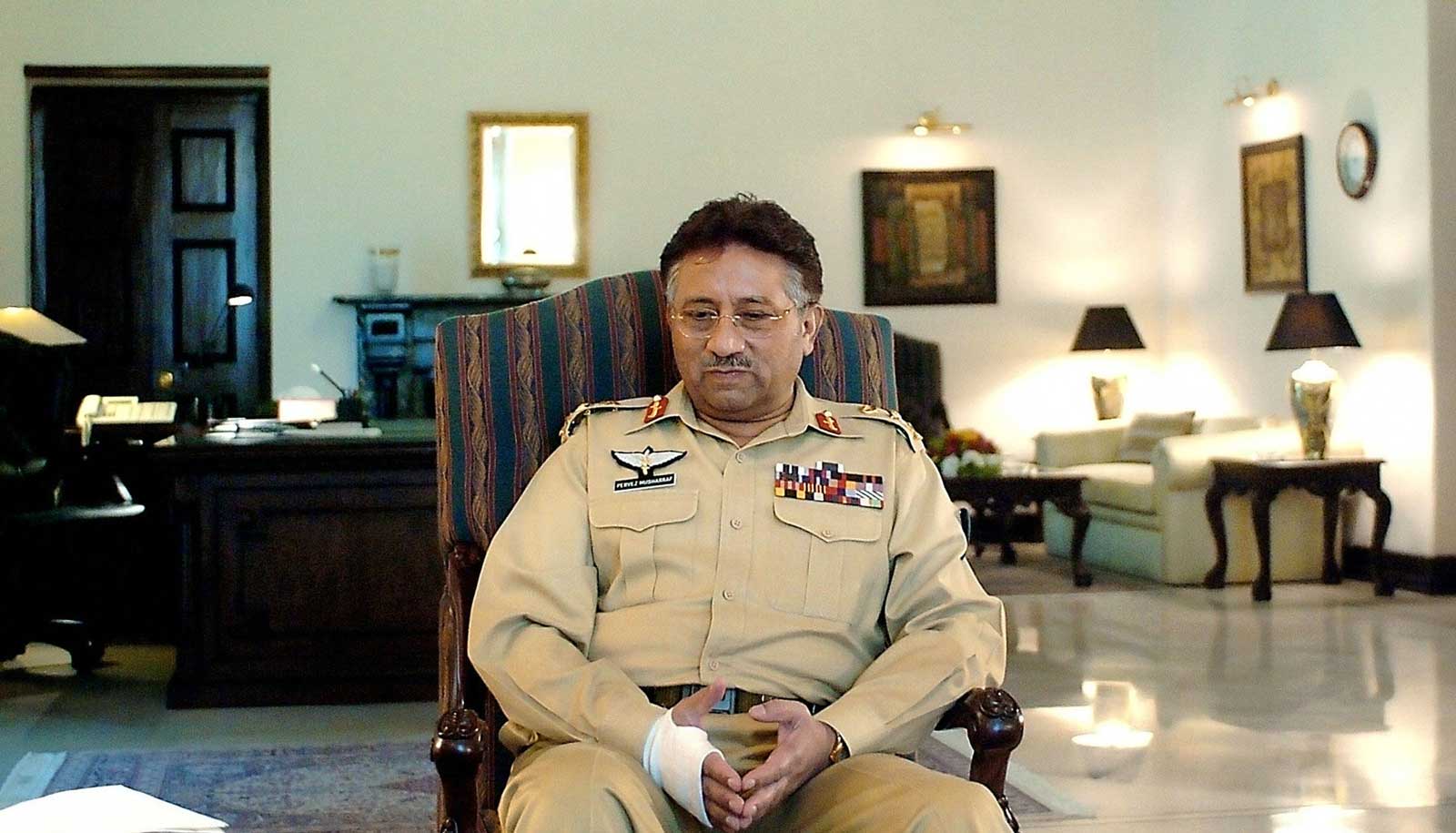Timeline of General Pervez Musharraf's treason trial
An overview of everything from the suspension of Constitution in Nov 2007 to the announcement of verdict in Dec 2019

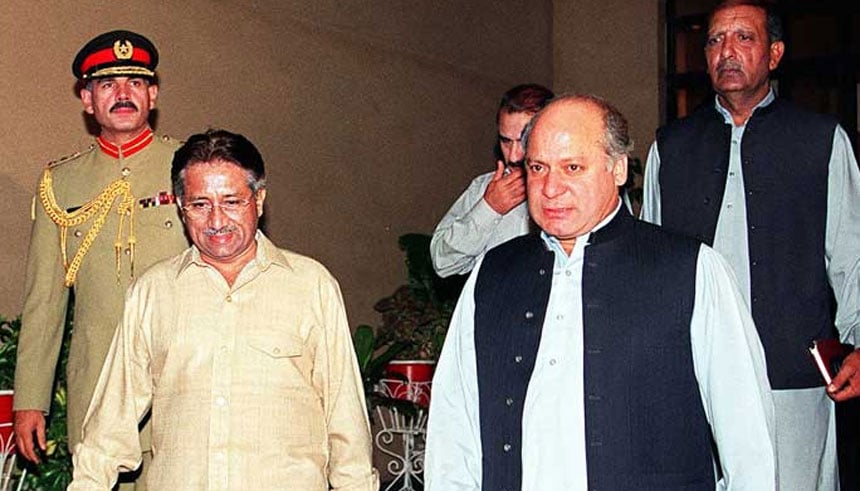
A special court on Thursday issued its detailed verdict in the high treason case against General (retd) Pervez Musharraf, directing law enforcement agencies to apprehend the former military ruler and "hang him by his neck till he dies".
A three-member bench of the special court headed by Justice Waqar Ahmed Seth and comprising Justice Nazar Akbar and Justice Shahid Karim heard the case lodged by the then PML-N government in 2013, seeking initiation of high treason proceedings against Musharraf for suspending the Constitution and imposing emergency rule on November 3, 2007.
Here's a timeline of the events and the subsequent case that has remained a bone of contention among state institutions.
November 2007
In his televised address to the nation in 2007, Musharraf cites multiple challenges faced by the country behind his decision to take extraordinary measures.
"Pakistan is on the verge of destabilisation, if not arrested in time now without losing any further time or delaying the issue. The saddest part of everything which saddens me the most is that after all we have achieved in the past seven years, I see in front of my eyes Pakistan's upsurge taking a downward trend," he says in his address to the nation.
During the emergency period, the Constitution remains suspended, media is muzzled and judges are put under house arrest.
July 2009
The Supreme Court asks Musharraf to defend his extra-constitutional measures in court. The apex court, in a historic ruling on July 31, 2009, declares the steps taken by Musharraf as illegal, but it still takes four more years to file the high treason case.
June 2013
In June 2013, the Pakistan Muslim League-Nawaz (PML-N) government files a treason case against Musharraf under Article 6 of the Constitution over the former president's imposition of extra-constitutional emergency in November 2007.
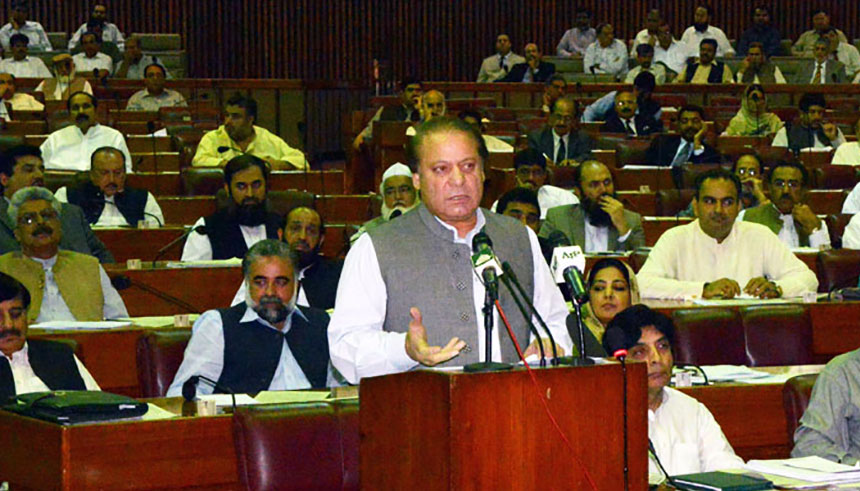
The move came after the Lahore High Court Bar Association's Rawalpindi bench president, Taufiq Asif, filed a petition in the Supreme Court in April 2013 to initiate a treason case against Musharraf.
November 2013
A three-member bench comprising Sindh High Court’s Justice Faisal Arab, Balochistan High Court’s Justice Tahira Safdar and Lahore High Court’s Justice Yawar Ali is formed to prosecute the former military ruler.
December 2013
Musharraf is booked in the high treason case.
January 2014
In an unprecedented move, Musharraf, en route to the special court, is rushed to a hospital after suffering a "heart problem".
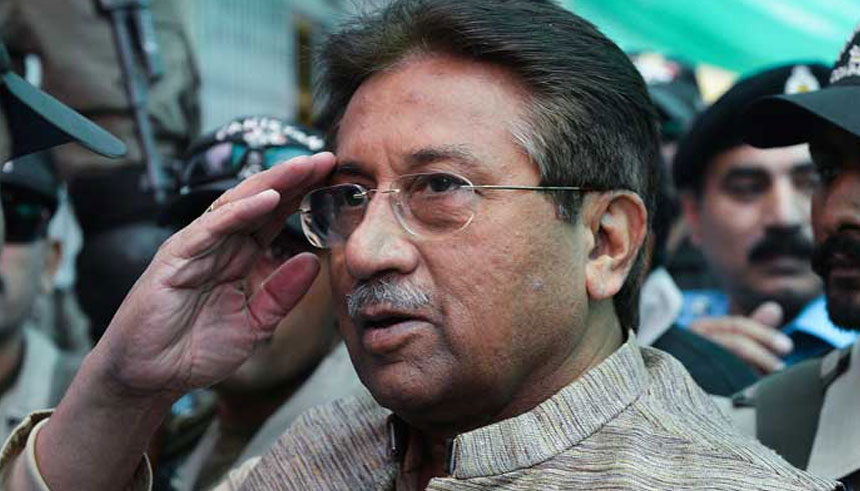
March 2014
The former military ruler is indicted by the special court in the high treason case. The former ruler argues that the case was "politically motivated".
May 2014
An investigation conducted by the Federal Investigation Agency (FIA) concludes that Musharraf imposed the emergency "illegally".
March 2016
Musharraf leaves for Dubai after his name is removed from the no-fly list and is allowed to travel abroad for medical treatment. He does not return to the country and refuses to appear before the court, despite multiple orders.
The court declares Musharraf a proclaimed offender and orders for his properties to be confiscated.
February 2018
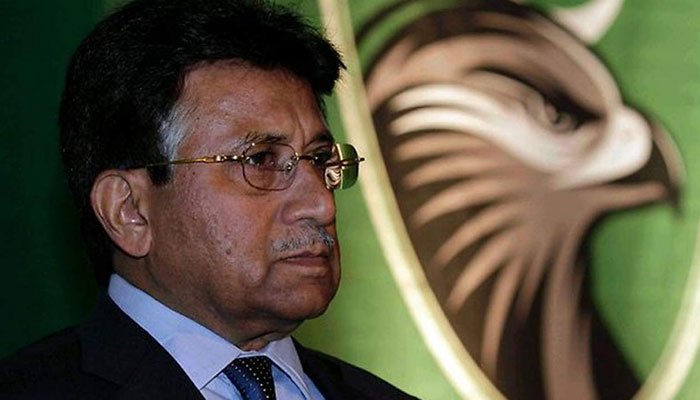
After nine months, the special court reconvenes and begins hearing the case against Musharraf. However, a month later the special court bench is dissolved after Justice Yahya Afridi recuses himself from hearing the case.
October 2019
The Pakistan Tehreek-e-Insaf (PTI) government denotifies the prosecution team working on the high treason case against Musharraf. Later that month, the court announces that it will be conducting day-to-day hearings of the case.
November 2019
On November 19, a special court reserves its verdict in the case against the former president.
At the same time, Musharraf files a petition in the Lahore High Court (LHC) challenging the reserved verdict passed in absentia, and pleads for the suspension of the trial. He also questions the formation of a special court without the federal cabinet’s approval.
Separately, the PTI-led government files an application in the IHC seeking for the verdict to be postponed until a new prosecution team is appointed.
December 2019
On December 17, the three-member special bench finds Musharraf guilty and sentences him to death for imposing a state of emergency on November 3, 2007, among other charges.
In its detailed verdict, the special court states that Musharraf had “been afforded more than his due share of fair trial” and “given every opportunity to defend himself”.
The court says that “the facts of the case are well documented” and “clearly demonstrate guilt on part of the accused”.



